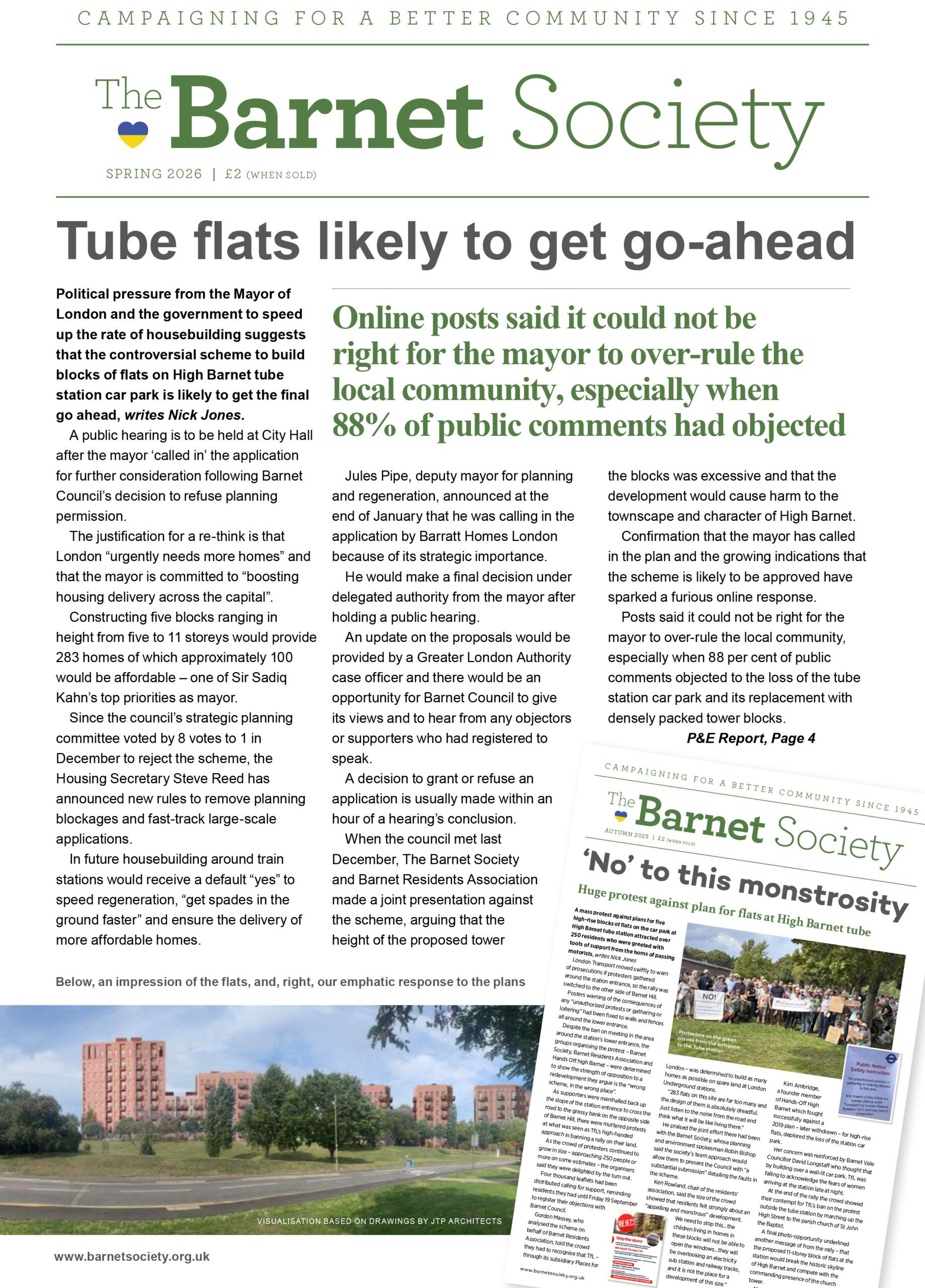Community gardens developed over 70 years ago together with meadows and hedgerows are now a wildlife haven
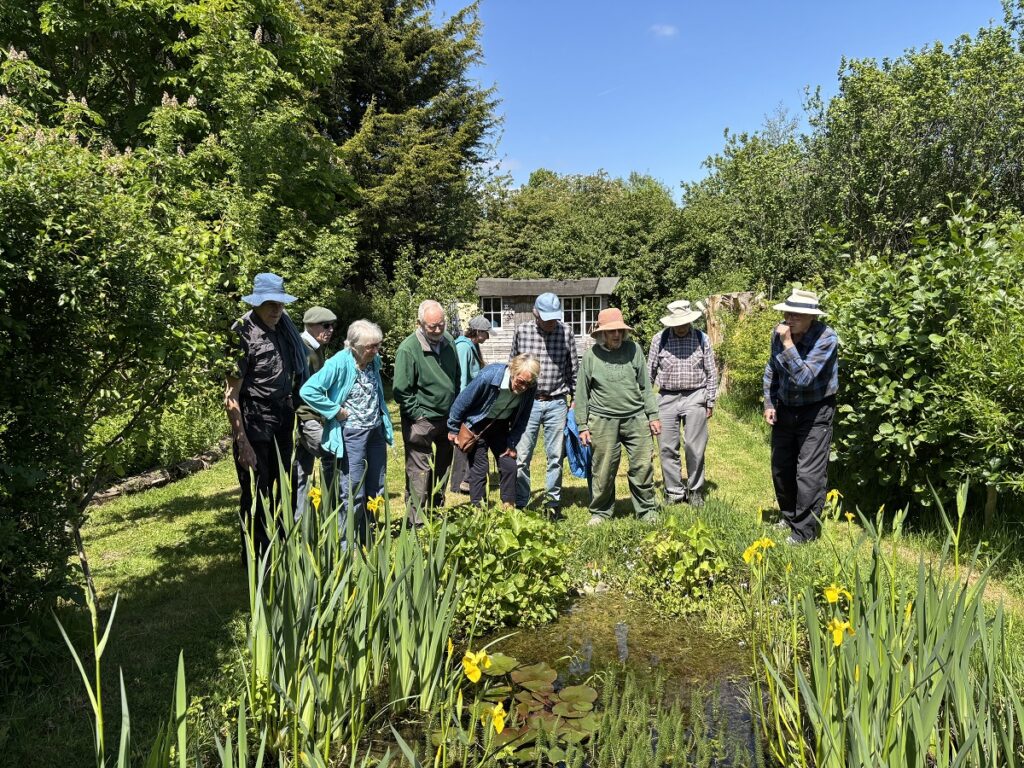
Tucked away at a wildlife site in the Barnet green belt is an enchanting array of community gardens which were developed in the 1950s, and which played a part in the early development of organic gardening.
Brookdale Wildlife Garden Community was established in 1951 when a group of a wartime allotment holders from Islington secured the lease of a ten-acre field on farmland owned by the Byng family at Wrotham Park.
Together with her friends who were also keen gardeners, Hilda Brooke, had grown fruit and vegetables on Hampstead Heath on what were known as “Dig for Victory” allotments.
When Hampstead Heath was reinstated after World War Two, they had to find a new site.
They moved to Barnet with the help and support of the Soil Association which was founded in 1946 to campaign for sustainable food production because of concern about the impact of intensive farming and resulting soil erosion and depletion.
An entire ten-acre field – which had formed part of a wartime decoy airfield to the north of Barnet — was leased to the exiled group of gardeners by Lady Elizabeth Byng for a first annual rent of £20.
Today, rather than concentrating on cultivation of produce, the Brookdale plot holders cherish their cluster of community gardens which have become a haven for wildlife.
Their individual gardens, community meadows and an ancient hedgerow — which are a designated wildlife site and are protected by an area tree preservation order — were visited recently (see above) by members of the Barnet Environment Centre who maintain the nature reserve in Byng Road.
During a tour of the gardens, they admired several of the small clay-lined ponds which are ideal for aquatic plants, attract dragon flies and provide a home for among others for frogs and great crested newts.
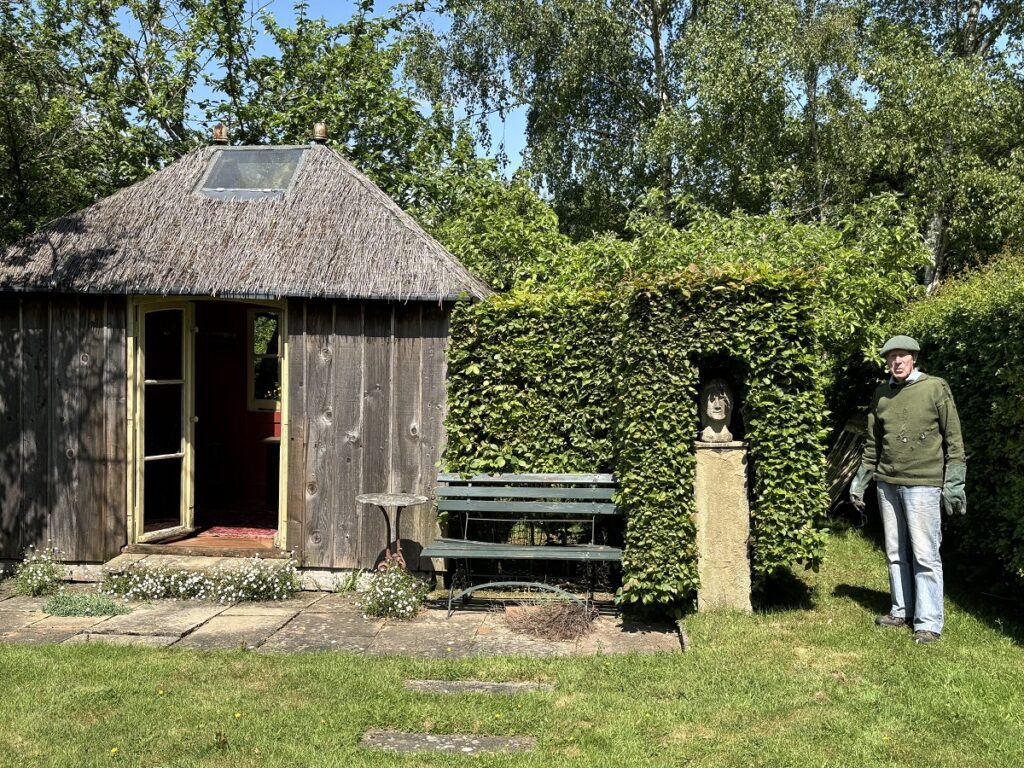
After so many years of care and attention each plot is distinctive and in the case of Michael Bruce – who has the distinction of being Brookdale’s longest tenant – his garden is a much-cherished refuge from the hustle and bustle of everyday life in Islington.
Michael has a much-loved summer house, well-tended borders and numerous features which he has developed during 33 years at Brookdale.
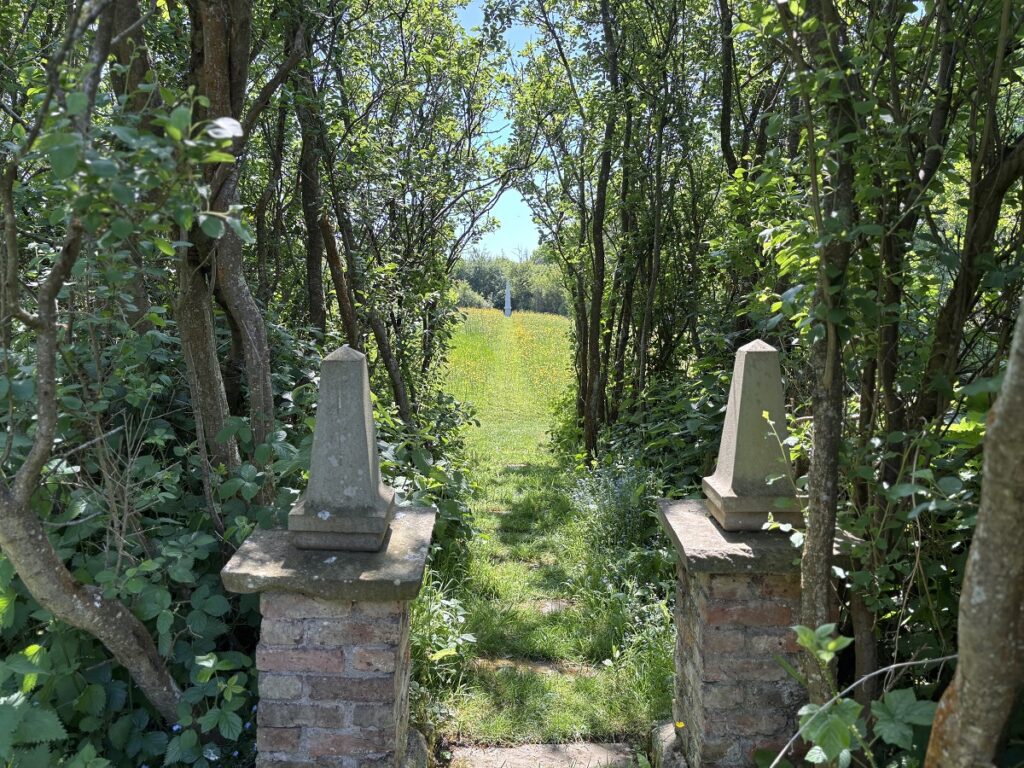
An archway at the end of his plot looks out onto a community meadow. Just visible in the far distance is an obelisk, which Michael made from wood and which he brings in each winter to avoid unnecessary wear and tear during bad weather.
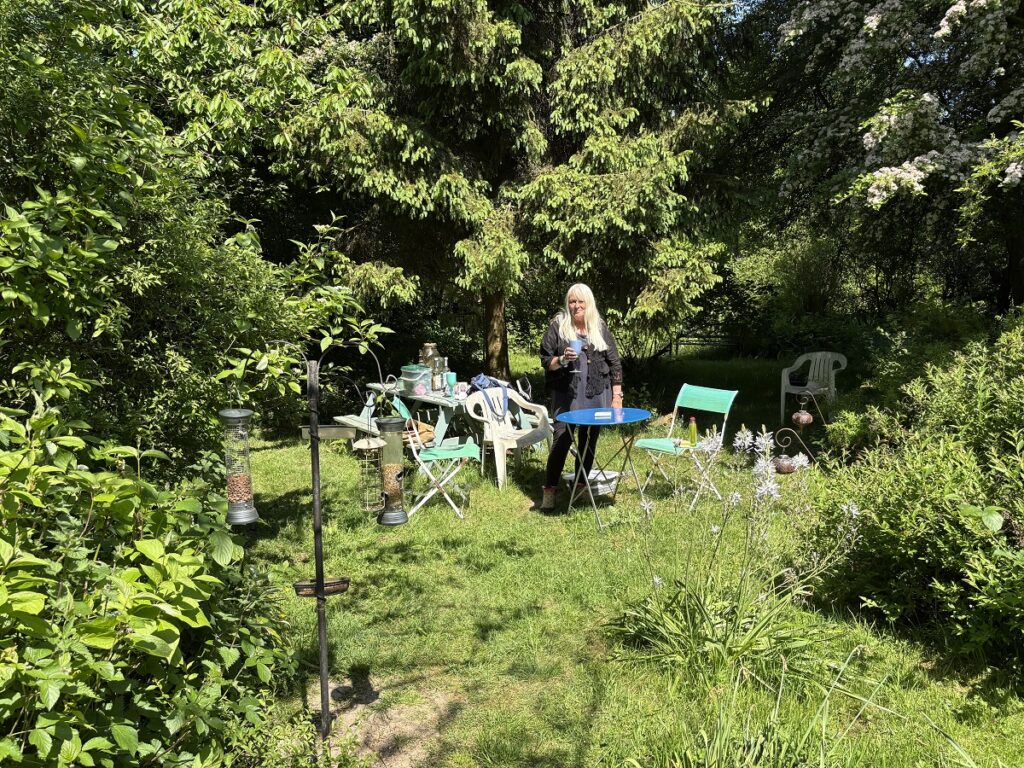
Christine Klein, who is a member of the Barnet Society and has been a plot holder since 2017, enjoys her personal haven of tranquillity and encourages the growth of wildflowers and shrubs.
“Unfortunately, I find it too difficult to grow vegetables. We get rabbits, muntjac and foxes visiting the plots and it would be hard work keeping them at bay.”
Just a step away from one of the community meadows is a former World War Two control bunker, a relic of the days when the site was a one of the decoy airfields intended to attract enemy bombers destined for the RAF Fighter Station at Northolt.
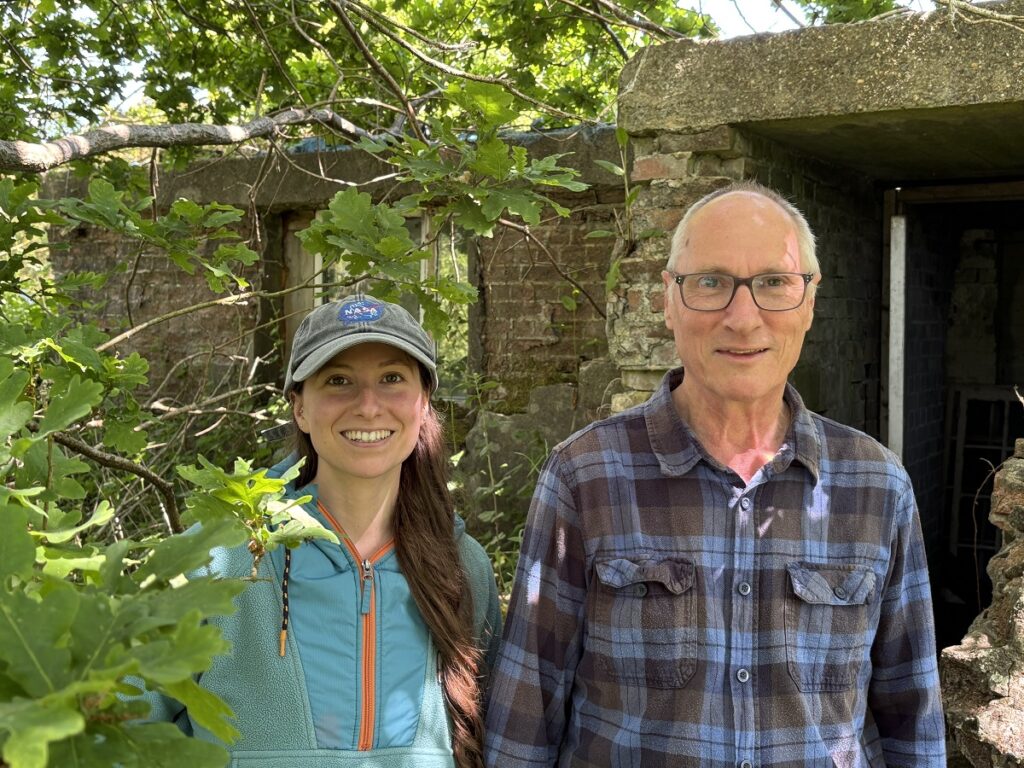
John Nicholls, a former vice chair of the group’s organising committee, seen above with his daughter Becky Nicholls, Brookdale’s membership secretary, said the bunker would have been a centre of operations for the decoy airfield.
“Dummy planes and painted canvases would have been laid out on the grass. We know that at night there were lights laid out to make it look like a landing strip.
“One story which we have been told is that the Germans found out it was a dummy airfield and even dropped a wooden bomb on the field to let everyone know.”
An official history of the decoy airfields says that the fuselages of about half a dozen Hurricanes mounted on wheels and with engines removed were used at Barnet.
Airmen moved about the field periodically at night riding bicycles fitted with lights to imitate aircraft movements.
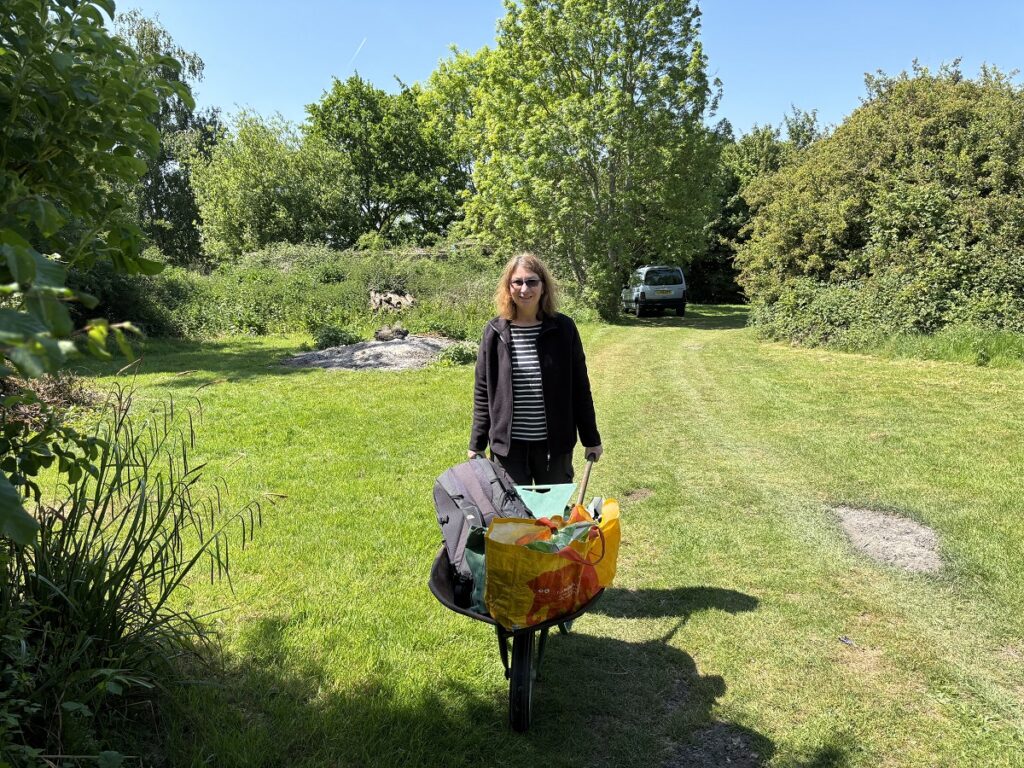
The challenge today for Becky Nicholls is to ensure the long-term future of their garden community after all the efforts over the years by her father and her mother Anna (above).
Whatever the pressures might be on the green belt, the group believe their wildlife credentials and charitable status should give them an assured future.
Brookdale was awarded “wildlife site” status within the Hertsmere local development plan in 1997 and the gardens are covered by an area tree protection order.
Currently Brookdale has 60 full members and eight associates.
“We are open to new members and in recent years more of the plots have been taken by people living in and around Barnet,” said Becky.
“This does ensure the gardens are used more regularly than is sometimes the case with those members who still live in Islington or further afield.
“We are happy to welcome volunteers, especially young people doing the Duke of Edinburgh award scheme, to help with the management of the habitat which takes a lot of effort.”
For further information contact Becky Nicholls at email bmnicholls101@gmail.com

